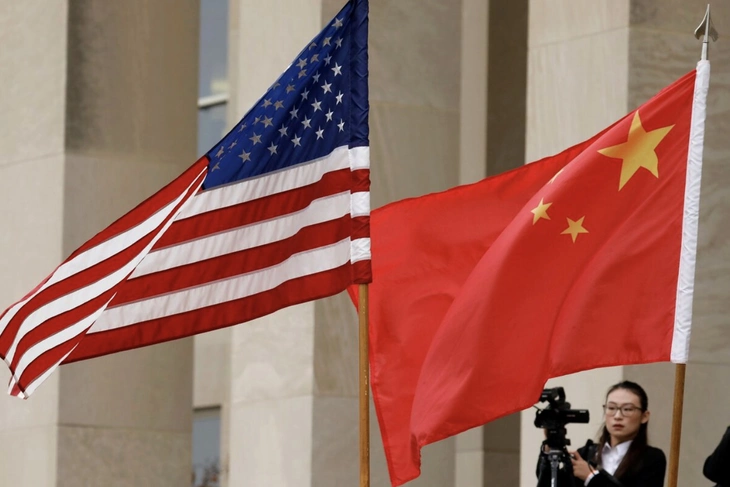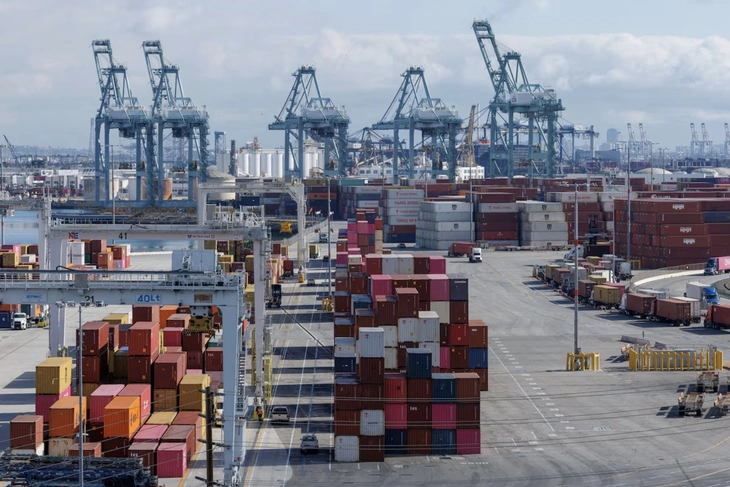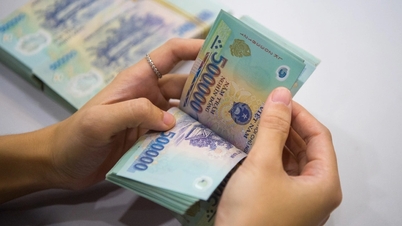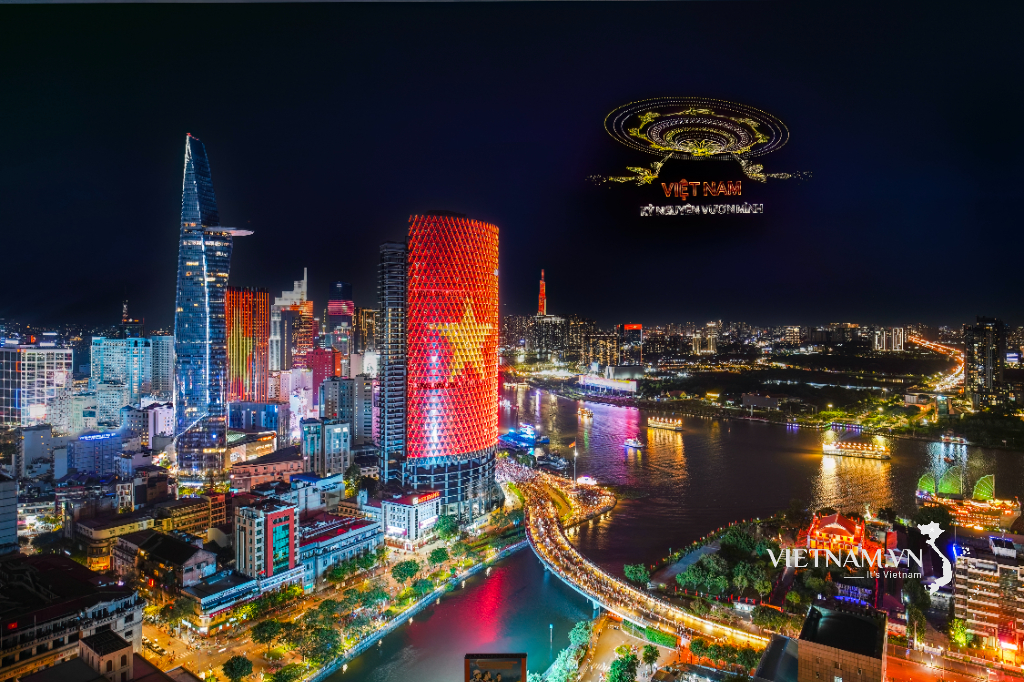
The US-China trade war has escalated in recent days, threatening market stability - Photo: REUTERS
'The market is still full of uncertainty'
US President Donald Trump's threat to impose an additional 100% tax on Chinese goods and Beijing's tough response have caused a series of fluctuations in the market.
On October 13, major stock markets in the Asia- Pacific region plummeted.
In the first trading session on October 13, Hong Kong's Hang Seng index, dominated by Chinese financial and technology corporations, fell 2.4%.
China's Shanghai Composite Index fell 1.6%. South Korea's KOSPI Index fell 1.5%. Taiwan's TAIEX Index fell 2.3%. Australia's S&P/ASX 200 Index fell 0.5%, according to CNN.
However, despite the sell-off, shares in China's rare earth industry - the focus of the latest trade war - rose more than 4% to a record high in the morning trading session on October 13. Semiconductor stocks also gained points, according to Reuters.
“President Trump just reminded everyone that the market is still very volatile,” said Ben Bennett, head of investment strategy for Asia at L&G Asset Management (Hong Kong).
Many variables

Shipping containers from China at the port of Los Angeles, USA in February 2025 - Photo: REUTERS
According to analysts from investment bank Goldman Sachs Group, recent policy moves from the US and China show that the current situation has become more unpredictable, and there are more variables than during the US-China negotiations in recent months.
“The most likely scenario seems to be that both sides will back off their toughest policies and the talks will continue to be extended and possibly extended indefinitely from the tariff truce reached in May,” Goldman Sachs Group said.
However, recent moves also show that China is demanding concessions from the US, and there is still a possibility that the two powers will return to the triple-digit tariffs imposed earlier this year, according to CNBC.
Analysts say that amid rising expectations and tougher countermeasures, the market could be negatively impacted when the US and China reimpose triple-digit tariffs.
Beijing also does not want higher tariffs, even though it may calculate that it would hurt the US economy more than China's, according to the Economist .
So far, tariffs have not pushed the US into stagflation, thanks in part to businesses trying to keep prices down. But tariffs in excess of 100% would be an unbearable burden for many companies.
"If neither side makes concessions, the US and Chinese economies could drag the world into a deep recession, even a serious crisis," warned Ed Yardeni, President of Yardeni Research.
However, both superpowers still have time to step back from the brink, as Mr. Trump's new tax measures only take effect from November 1.
The US leader admitted that he chose this time to create room for negotiations, which could take place at the APEC Summit in South Korea at the end of October.
Therefore, it is not impossible that the US-China trade war will have unpredictable developments from now until early November.
Latest developments in the US-China trade war
China sparked trade tensions with the US when on October 9 it issued a series of measures to control rare earth exports.
On October 10, US President Donald Trump responded by imposing an additional 100% tax on Chinese goods, raising the total tax rate to 130%, and tightening the export of "all important software".
The additional tariffs are expected to take effect from November 1, in response to Beijing's restrictions on rare earth minerals.
However, just two days later, on October 12, Mr. Trump suddenly lowered his voice, affirming that the US "wants to help China, not harm it", showing a conciliatory attitude.
He wrote on Truth Social that President Xi Jinping is going through “bad times” and neither side wants the economy to fall into recession.
On October 13, China's Foreign Ministry warned that it would "resolutely respond in kind" if Washington carries out its plan to impose 100% tariffs on all Chinese goods.
Source: https://tuoitre.vn/chung-khoan-toan-cau-lao-doc-vi-thuong-chien-my-trung-co-phieu-dat-hiem-lai-tang-20251013150710348.htm







![[Photo] Dan Mountain Ginseng, a precious gift from nature to Kinh Bac land](/_next/image?url=https%3A%2F%2Fvphoto.vietnam.vn%2Fthumb%2F1200x675%2Fvietnam%2Fresource%2FIMAGE%2F2025%2F11%2F30%2F1764493588163_ndo_br_anh-longform-jpg.webp&w=3840&q=75)


































































































Comment (0)